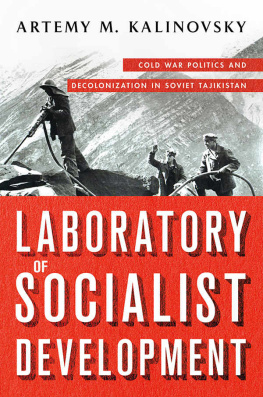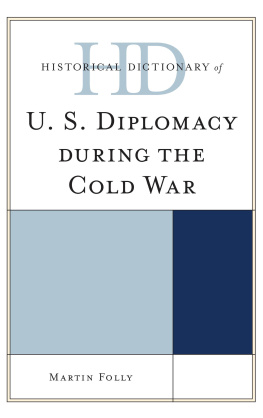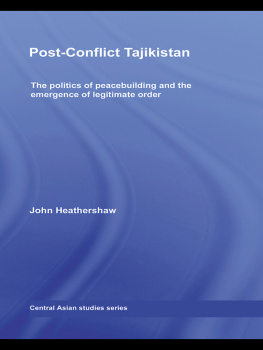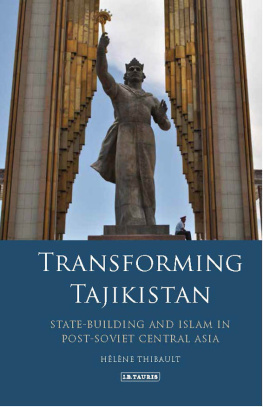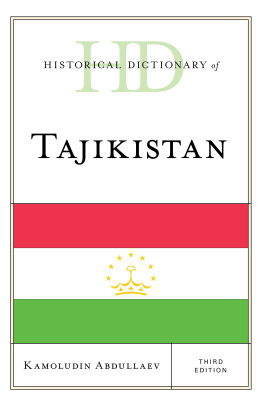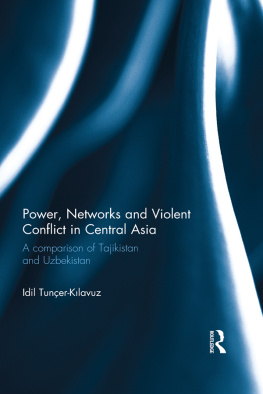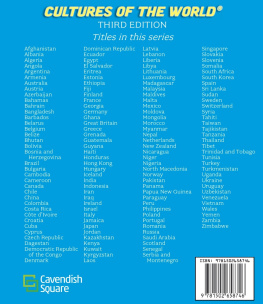Artemy M. Kalinovsky

Soviet Tajikistan: cities, major rivers, and industrial sites.
Contents
Acknowledgments
Any attempt to account for all of the debts accumulated in writing this book would quickly take a Borgesian turn, taking up many more pages than the work itself. Nevertheless, I am going to try.
My greatest debt is to the people who shared their time, experiences, and knowledge. I am particularly grateful to Azizjon Rahmonov, Munira Shahidi, Olle Andersen, Ravshan Abdullaev, and Hojamamat Umarov. Abudrashid Samadov shared his knowledge of Persian literature over the years and became an invaluable guide into the world of the Tajik-Soviet intelligentsia. In Nurek, Rustambek and Kurbon Ashurov were my initial guides. Ismoil Tolbakov, Zaragul Mirasanova, and the staff at the Institute of Party History in Dushanbe kindly provided access to the party archives. Tahmina and her staff at the Central State Archive of the Republic of Tajikistan provided invaluable assistance over the years. Many thanks also to the staff of the Indira Gandhi Library at the Academy of Sciences, who were unfailingly kind, welcoming, accommodating, and patient.
Since I started conducting research in Moscow in 2004 I have had the privilege of feeling at home in Russia, a feeling unavailable to many emigrants. This is largely because Evgeny Golynkin and Alla Shashkova have shared their home with me. I am also grateful to Mikhail Lipkin, Sergey Abashin, Natalia Kapitonova, Vladimir Shubin, Viacheslav Nekrasov, and other Moscow scholars who facilitated my research there and provided intellectual food for thought. Again, the staff at the various archives listed in the bibliography deserve special thanks.
Mentors new and old have helped me conceptualize this project and offered valuable criticism and advice. Odd Arne Westad has continued to provide encouragement, support, and feedback long after his formal responsibility to do so ended. David Priestland has also given invaluable advice and considered feedback on some chapters. Adeeb Khalid encouraged me to pursue this project and helped me sharpen my thinking in the early stages. Muriel Atkin has been one of my sharpest critics since I first sat in her Russian history course as a freshman and used her encyclopedic knowledge of Tajikistan to help me develop this project.
I have been shameless in asking friends and colleagues to read my work and offer feedback. Particular thanks to Flora Roberts, Patryk Reid, and Till Mostowlansky, who read earlier versions of this manuscript from beginning to end and offered helpful comments. Dina Fainberg read many of these chapters more than once; I cannot imagine finishing this project without her input. Same goes for Vanni Pettina, who helped me see connections between what took place in Central Asia and the experience of development as far away as Latin America. David Engerman pushed me to sharpen my arguments at several points over the past few years and provided valuable feedback on the introduction. I feel a particular bond to the people I met in the field. Talks with Masha Kirasirova, although infrequent because of geographical distance, provided food for thought and spiritual nourishment for many months. Particular thanks to Malika Bahovadinova and Isaac Scarborough, with whom I hope to collaborate for years to come. Conversations with Daniel Beben and James Pickett were always educational, and I am grateful to them for sharing their linguistic expertise over the years. Gabrielle van der Berg graciously responded to queries. Thanks to Christian Bleuer, a brilliant guide to Tajikistans history, politics, and outdoors.
Academics are encouraged to go beyond their silos and engage other disciplines. Doing so involves finding experts willing to share their knowledge and offer a critical eye. This book would have been very different without the input of Julie McBrien and Yakov Feygin. I am also grateful to P. W. Zuidhof, Luiza Bialasiewicz, Sophie Roche, and Jeanne Feaux de la Croix. George Blaustein was my go-to source for all things American, whether he liked it or not. My thanks also to Shirin Akiner and Zayra Badillo y Castro for hosting me in London and engaging in very helpful discussions.
This project was first conceived when I was at the London School of Economics, but most of it was developed at the University of Amsterdam. My colleagues, and in particular Michael Kemper, have gone out of their way to be supportive and create a stimulating intellectual environment. I am forever grateful to Hanna Jansen, among the first to make me feel at home in Amsterdam. Many thanks also to Danis Garaev, Sara Crombach, Alfrid Bustanov, Erik van Ree, Ben de Jong, Marc Jansen, and Tatjana Das for their company and stimulating discussions over the years.
This research has received generous support from several institutions. An IREX grant allowed me to make my initial trip to Tajikistan in 2011, and the IREX office in Dushanbe continued to offer support in subsequent years. My thanks to Radik Naibullin and Ibrahim Rustamian. The bulk of this research was conducted with the support of a Veni grant from the Dutch Research Organization, NWO. The Dutch Royal Academy of Science provided support for a workshop on development in Central Asia held in 2015. The Amsterdam School of Regional, Transnational, and European Studies provided additional support as the project neared publication. My thanks to Christian Noack and Paul Koopman.
Ever since Roger Malcolm Haydon said I hate book proposals I knew this was an editor with whom I wanted to work. My thanks to him for taking a chance on the book and seeing the manuscript through. Many thanks also to production editor Sara Ferguson, Bill Nelson for the maps, Sandy Aitken for the index, and the two anonymous readers for their careful assessment and helpful comments. Brian Inman Becker continues to be a great friend and editor.
None of this would be possible (or worthwhile) without the support of friends and family. My grandmother, Irina Kronrod, and my father, Mikhail Kalinovsky, passed away before the book was completed. Whatever their feelings about the Soviet Union, they were Soviet people, shaped by that countrys institutions and the particular kind of social mobility offered by those. Although they were from another periphery of that country, many of the questions I asked in my research inevitably reflected my contemplation of their life stories. Jeske Ruigrok did not bat an eye when I first asked her to come to Tajikistan and became as much an enthusiast for the country as I am. Indeed, her enthusiasm for this project sometimes seemed stronger than mine. Sophia Irina did nothing to speed the process along, but her appearance in our lives has made everything else better.
Transliteration
Tajik is a close relative of Persian and was written in Persian (Arabic) script until the 1920s. Orthographic reforms undertaken in the Soviet period led to the language being rendered in a modified Latin alphabet and then in a modified Cyrillic. (On the relationship between Tajik, Persian, and Dari, see James Picketts Categorically Misleading, Dialectically Misconceived: Language Textbooks and Pedagogic Participation in Central Asian Nation-Building Projects, [ Central Asian Survey (2017): 120].) In transliterating Tajik words, I have generally used a simplified version of the Library of Congress (LOC) system, with Tajik rendered as , a soft x rendered as h but a harder one, , rendered as kh. For Russian, I have also followed a simplified version of the LOC system, with as ts and as i, with rendered as ii.

